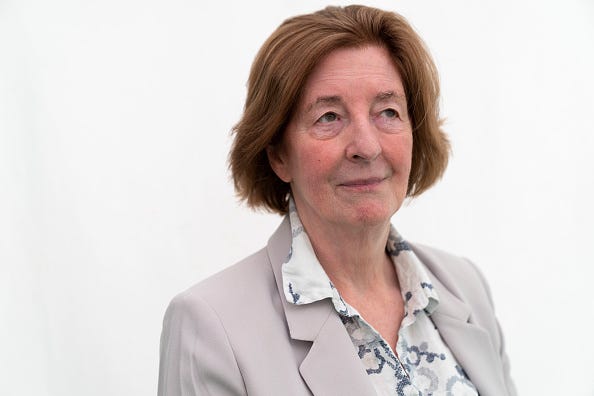|
 |
The Writer's Almanac from Thursday, May 8, 2014
"To the Virgins to Make Much of Time" by Robert Herrick. Public Domain.
ORIGINAL TEXT AND AUDIO - 2014
Today is the birthday of literary and social critic and all-around "man of letters" Edmund Wilson, born in Red Bank, New Jersey, in 1895. He didn't like to be called a critic; he thought of himself as a journalist. He had a decent, if brief, editorial career in the 1920s, at Vanity Fair and The New Republic, and later was a book reviewer for The New Yorker and The New York Review of Books.
Wilson could be very opinionated, and he didn't mince words when it came to things he didn't like. He could be brutal in his reviews, like when he wrote, "The cruelest thing that has happened to Lincoln since being shot by Booth was to have fallen into the hands of Carl Sandburg," or, "His style has the desperate jauntiness of an orchestra fiddling away for dear life on a sinking ship." He called Tolkien's Lord of the Rings "juvenile trash" and Kay Boyle's Avalanche "a piece of pure rubbish." In 1959, he wrote to Lionel Trilling, "In my opinion, [Robert] Frost is partly a dreadful old fraud and one of the most relentless self-promoters in the history of American literature." He said that his friend F. Scott Fitzgerald "has been given imagination without intellectual control of it; he has been given a desire for beauty without an aesthetic ideal; and he has been given a gift for expression without very many ideas to express."
It's the birthday of novelist Pat Barker, born in Thornaby-on-Tees, England (1943). She grew up poor in northern working-class England. She was born to a single mother and never knew her father (her mother wasn't sure who he was, although for years she lied to her daughter and claimed that he had been a pilot killed in World War II). Barker was brought up by her grandparents, who ran a fish and chip shop, and Barker often helped out in the store. Customers brought in their old newspapers to wrap up the food, and reading those newspapers turned Barker into an enthusiastic reader. Once someone brought in a big stack of papers with a poetry book slipped inside, and that was the first poetry Barker ever read.
Barker's grandparents received National Assistance, but she was a good student and won a series of scholarships, eventually ending up at the London School of Economics. She was married, with a baby, when she started writing fiction seriously. She wrote three novels, but she couldn't find a publisher. She said: "I was writing things that I shouldn't have been trying to write. I was writing sensitive middle-class lady novels, and it's not what I am." She went to a writing workshop led by the novelist Angela Carter, who encouraged Barker to focus on the life and landscape she knew from her childhood. Barker said, "I decided that I probably wasn't going to be published, so I would write the book I wanted to write anyway." So she wrote a novel about seven working-class women in an industrial town in northern England struggling with poverty, sexual assault, and violence. Sure enough, no one wanted to publish that novel any more than they had wanted to publish her "lady novels" — they told her that her new book was too depressing. It took almost 10 years, but finally a feminist publishing house accepted Union Street (1982).
She wrote two more books in a similar vein, and then, she said: "I had got myself into a box where I was strongly typecast as a northern, regional, working-class, feminist — label, label, label — novelist. It's not a matter so much of objecting to the labels, but you do get to a point where people are reading the labels instead of the book." So she changed directions. Her beloved grandfather had been a World War I veteran, and she had grown up listening to his war stories — she was occasionally allowed to touch the bayonet wound on his back. She said that people kept asking whether she was able to write about men, "as though that were some kind of Everest." So Barker wrote a trilogy of novels about men in World War I, historical fiction that included real-life figures like poet Siegfried Sassoon and psychoanalyst W.H.R. Rivers. The three novels — Regeneration (1991), The Eye in the Door (1993), and The Ghost Road (1995) — got great reviews, and she won the Booker Prize for The Ghost Road. Suddenly, Barker was famous, but she stayed living in her modest house in Durham, in northern England, steering clear of the London literary scene.
Her other books include The Century's Daughter (1986), Border Crossing (2001), Life Class (2007), and Toby's Room (2012).
She said: "Fiction should be about moral dilemmas that are so bloody difficult that the author doesn't know the answer. What I hate in fiction is when the author knows better than the characters what they should do."
Be well, do good work, and keep in touch.®
If you are a paid subscriber to The Writer's Almanac with Garrison Keillor, thank you! Your financial support is used to maintain these newsletters, websites, and archive. If you’re not yet a paid subscriber and would like to become one, support can be made through our garrisonkeillor.com store, by check to Prairie Home Productions, P.O. Box 2090, Minneapolis, MN 55402, or by clicking the SUBSCRIBE button. This financial support is not tax deductible.

